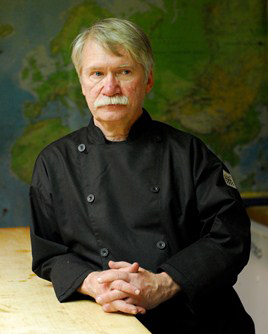Think Tank: Separating the Sizzle from the Steak
28 July 2014
 In curriculum development, although enrollment-management departments like to promote courses that concentrate on attractive ancillary skill sets, insufficient dedication to teaching strong foundational abilities will negatively impact student employability and success.
In curriculum development, although enrollment-management departments like to promote courses that concentrate on attractive ancillary skill sets, insufficient dedication to teaching strong foundational abilities will negatively impact student employability and success.
By Paul Sorgule, MS, AAC
Marketers have long understood that promoting what excites people is the best way to sell a product. The classic mantra has been: “The sizzle sells the steak.” This can be problematic when the steak is sacrificed for the sizzle in an effort to increase sales. Eventually, the customer will become dissatisfied with the results.
Colleges have adopted this classic marketing strategy over the past few decades with significant investments in physical plant and amenities that are far removed from the primary mission of delivering a valuable education. This has, in some cases, even crept into curriculum development.
Culinary-arts programs are challenged with building sufficient enrollment to support the high cost of delivery and, as a result, rely on the strategies that enrollment-management departments develop.
Although the original audience for culinary education a few decades back was a nontraditional student seeking the necessary skills to start a career, today’s typical culinary student arrives having recently completed a high-school diploma. This younger market is as interested in the “college experience” as curriculum content, and easily connects with those content pieces that appear dynamic and fun. Enrollment-management departments understand this and urge colleges to focus on these components in an effort to create a highly saleable product.
Many culinary-curriculum developers are increasingly inclined to focus on courses that highlight ancillary skill sets that are unlikely to make graduates employable, but are attractive to students interested in a particular school. Courses that concentrate on centerpieces, culinary show work, ice carving and competitions (the sizzle), but fail to spend sufficient time on foundational skills, repetition, organization, speed, problem solving, teamwork, nutrition and cost control (the steak), are less likely to set the stage for initial student employability and success.
Certainly, a taste of the content that excites is important as program directors build curriculum, but we must never lose site of our primary mission: employability. In the long run, graduates will be grateful for the discipline and time spent on those skills that build their confidence and ability to perform.
Repetition of tasks builds competence and competence builds confidence. This formula works.
Pastry chefs hire students who understand and can demonstrate those foundational skills that are essential to a bakeshop. The ability to consistently produce quality breads, rolls, quick breads, muffins, cookies, laminated dough, basic cakes and short pastry, demonstrate solid piping skills, and prepare fillings and coulis will always trump a graduate’s ability to work with chocolate and sugar.
A savory chef seeks graduates who demonstrate strong knife skills, proper sanitation practices, product-identification confidence, a clear understanding of foundational cooking methods and the ability to organize and work an à la carte station. These skills will always lead to opportunities before a graduate’s ability to build a dynamic show platter or carve a swan out of ice. There is a time and a place for those artistic skills in a graduate’s career, but not at the expense of strong foundational abilities.
Can your interns and graduates produce in a kitchen with reasonable speed and dexterity and with minimal supervision? This is what employability looks like, and this should be the primary mission of a curriculum.
Do your graduates understand the fragile nature of profitability in restaurants? Do your graduates understand the legal, moral and ethical responsibilities associated with food sanitation and safety? Are your graduates well versed with food preparations that follow the guidelines for a healthy and balanced menu, and are they able to adapt their cooking to accommodate food allergies and intolerances? These are the skills that will set the stage for graduate success and should always be at the forefront of curriculum development.
When you look at your curriculum, what do you see? Is the curriculum sequenced with employability as the primary outcome? Has the sizzle taken anything away from the steak?
What do you think?
Paul Sorgule, MS, AAC, president of Harvest America Ventures, a “mobile restaurant incubator” based in Saranac Lake, N.Y., is the former vice president of New England Culinary Institute and a former dean at Paul Smith’s College. Contact him at This email address is being protected from spambots. You need JavaScript enabled to view it., www.harvestamericaventures.com.
